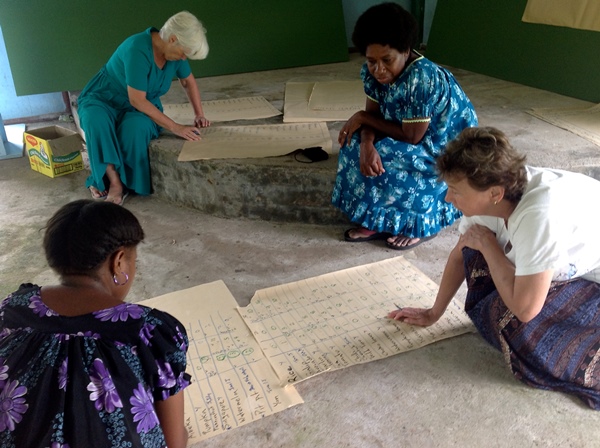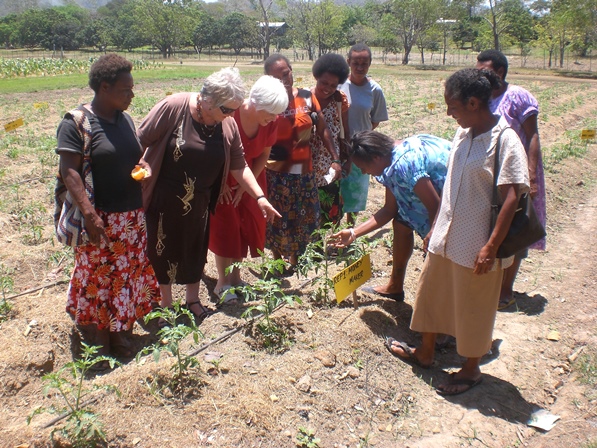Marcus Butler
10 July 2015: A University of Canberra research program that has developed ways to support women farmers and their families in Papua New Guinea (PNG) to improve their business and agricultural management skills has received a $3 million funding boost.
Professor of community learning and development Barbara Pamphilon and her colleagues have been working with communities in diverse regions of PNG, researching the knowledge and the skills required by women to run their farms as small home businesses.
"We are engaging women and families to take better control of their earnings and to adopt more effective practices to improve how their farming businesses run," Professor Pamphilon said.
The multimillion-dollar funding grant from the Australian Centre for International Agricultural Research will see teams of village community educators enlisted and trained to help local families in a growing number of regions over the next three years.
Each community educator will take a leadership role, teaching business practices to small-hold vegetable farmers in their local language, as well as in English.
The program, which is run through the University's Australian Institute for Sustainable Communities, has been operating in pilot regions since 2011, but increasing success has prompted an expansion, including reaching some of the most inaccessible mountainous regions of the country.
The project will also target those families growing certain commodities such as coffee, cocoa and sweet potato, with an additional aim to improve their engagement with larger business representatives.
Professor Pamphilon and her colleagues, associate professor in community education Katja Mikhailovich, and assistant professor in early childhood primary education Kym Simoncini, see a great benefit for families when targeting women through the project.
"We know that when women are in control of the finances from their smallholder farms, then about three quarters of the money earned stays within the family," Professor Pamphilon said.
"The figures are vastly different when men are in charge of the purse-strings, with just 25 per cent of earnings typically going to support the family," she added.
The program encourages men and women to see themselves as a family team and to work together to plan the growing and selling of their produce, from fruits and vegetables to home crafts.
Some of the practices include understanding pricing, marketing, reinvesting in materials needed for their farming plots and saving money for larger purchases.
Professor Pamphilon said the project approaches farming families with relevant and easily accessible materials and training methods.
"We've distributed books to their children in schools, providing guidance through those stories that their parents can pick up on. The books encourage kids to be in school, but also give the parents some skills to apply to their farming and marketing their produce.
"Something as simple as encouraging the farmer to wash their produce, to be well presented at their market stall and to know their competitors' prices can get a better return for their hard work," she said.
The program commences next month and will run until mid-2018.




